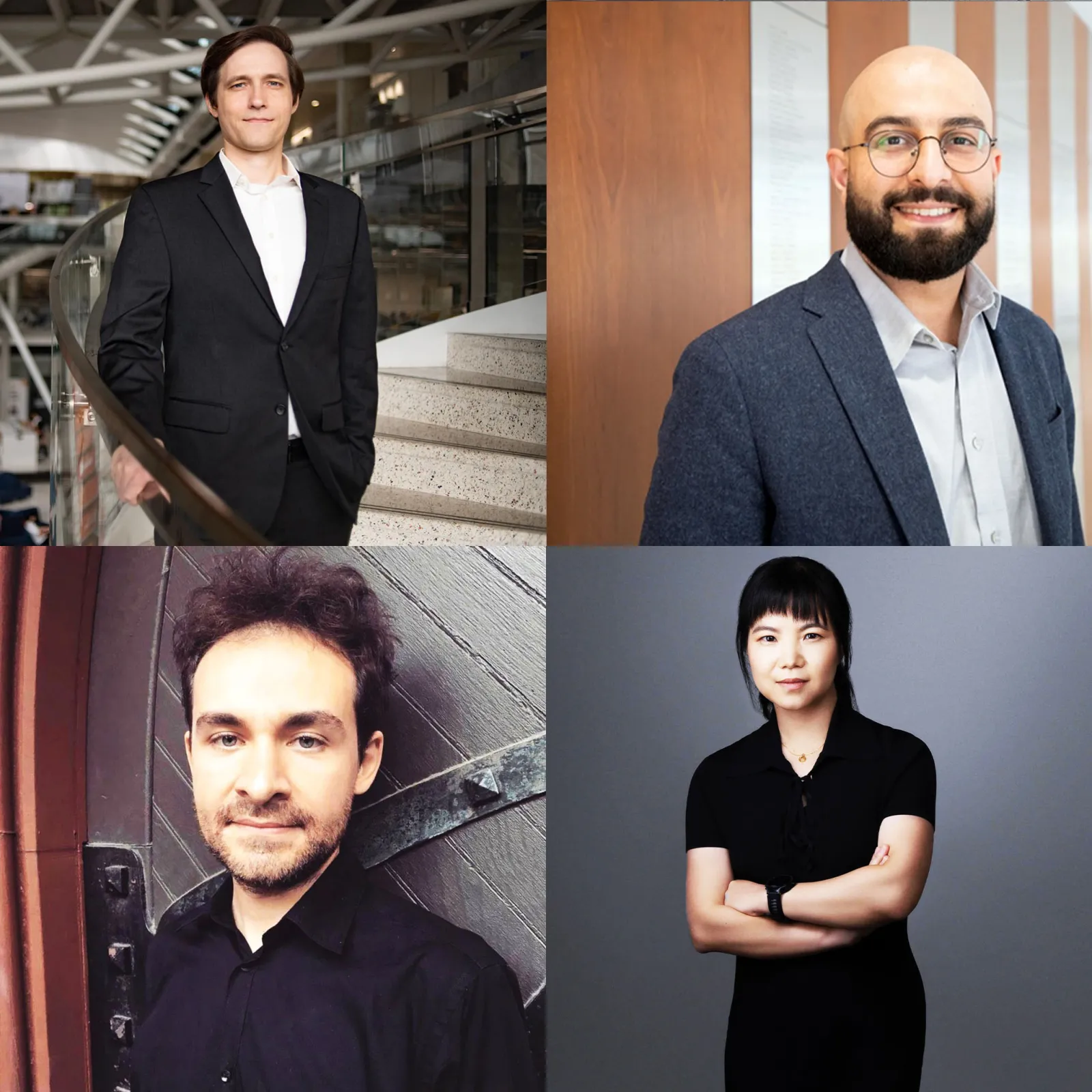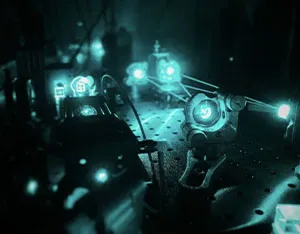
May 9, 2024
Four early career researchers who show exceptional ability and promise for conducting basic research were selected for highly competitive Department of Defense awards. These engineering and physics faculty are awarded multiyear support for projects that will tackle wide-ranging challenges relevant to national security.
Assistant Professor Awarded MURI to Develop Techniques for Better Understanding of Space Events
David Burghoff, assistant professor in the Chandra Family Department of Electrical and Computer Engineering, will lead a team that is exploring the capabilities and limits of heterodyne spectroscopy, a method used to analyze the interaction between light and matter. The work could enable a new level of precision in measuring remote stars and planetary formation and speed and location of satellites in low earth orbit.
Burghoff is one of 30 recipients of a Multidisciplinary University Research Initiative (MURI) award, a highly competitive grant that supports basic defense-related research projects from academic institutions across the U.S. As principal investigator, he will work with a cross institutional team of researchers from University of Colorado Boulder, Yale University, University of Central Florida College of Optics and Photonics, University of Southern California and University of Michigan to establish “Precision Radiometry for Incoherent Spectral Measurements (PRISM).”
This project initiates a multiyear effort to further fundamental knowledge and development of spatial and spectral resolution technology to detect light sources which produce light across a wide range of wavelengths and leverages the team’s interdisciplinary expertise in optical metrology, nanophotonics, astronomy and quantum photonics. The overarching theme of Burghoff’s research is the development of new platforms that will allow long-wavelength light to be used in scalable sensors and systems.
Burghoff is also the previous recipient of an Air Force Office of Scientific Research (AFOSR) Young Investigator Program (YIP) for “Microresonator Solitons in Quantum Cascade Lasers” and an Office of Naval Research (ONR) YIP “Frequency Comb Ptychoscopy: Imaging Beyond the Resolution-Delay Limit.”
Using AI to Strengthen the Power Grid
Javad Mohammadi, assistant professor in the Maseeh Department of Civil, Architectural Engineering has been selected for an AFOSR YIP for his research project “Enhancing Decision Speed and Resilience of Multi-Agent Situational Awareness and Inference through Physics-Informed AI.”
His project centers on improving system-level performance of the power grid by integrating AI with a variety of connected devices to perform a collaborative task. Essentially these devices, such as power grid monitoring sensors, EV charging systems, smart grid-interactive buildings, could learn to talk to each other. As significant weather events and cyber threats to power systems continue to be on the rise, using artificial intelligence to communicate and coordinate reduction of energy use in connected devices could help during emergencies and decrease the overall strain in times of high demand.
With a background in power system modeling and optimization, Mohammadi’s research focuses on resilient operation of the energy infrastructure and his research interests include multi-agent optimization and machine learning in networked cyber-physical systems, including smart grid-interactive buildings, power grid, and electrified transportation systems.

Understanding the Possibilities of Promising Quantum Materials
Edoardo Baldini, assistant professor in the Department of Physics, has been honored with an AFOSR YIP award for his proposal “Terahertz-speed Manipulation of Two-Dimensional Ferroelectricity.”
For this project, he will use advanced laser techniques to explore the fundamental physics of quantum materials, solids that host quantum mechanical phenomena over a wide range of energy and length scales. The research will specifically focus on the class of two-dimensional van der Waals ferroelectrics, which have recently emerged as promising candidates for cutting-edge electronic, spintronic, and sensing devices. Future progress in using these technologies rests on the ability to manipulate ferroelectricity at terahertz speeds and understand its underlying microscopic interactions.
More broadly, Baldini studies a wide range of emergent phenomena in quantum materials in and out of equilibrium, including magnetism, superconductivity, and non-trivial topological states. His group also engineers tailored laser pulses to control material properties on ultrashort timescales, aiming to achieve exotic functionalities for future quantum technology.
Advancing Game-Changing Particle Acceleration Technology
Ou Labun, research associate and lecturer in the Department of Physics, was selected for an AFOSR YIP for her proposal “Sensitivity Study of Compact Laser-Plasma Accelerators.”
Her project is a sensitivity analysis which aims to develop statistical methods to measure stability and determine sources of shot-to-shot variability. Shot-to-shot variances are a long-standing problem that hinder laser-plasma acceleration from fulfilling its promise to reduce the footprint and cost of high-energy particle accelerator facilities. Reducing these variances will increase the overall stability of this technique as a necessary step toward its use for high-energy physics discovery science or medical applications.
Labun’s research in the areas of nuclear and laser-plasma physics is focused on building phenomenology tools to connect the theoretical predictions with the experimental observables in high energy density physics. She works within UT’s Center for High Energy Density Science, performing research on a wide range of topics that can be applied to diverse fields including astrophysics, fusion research, and ultrafast radiation source development.
